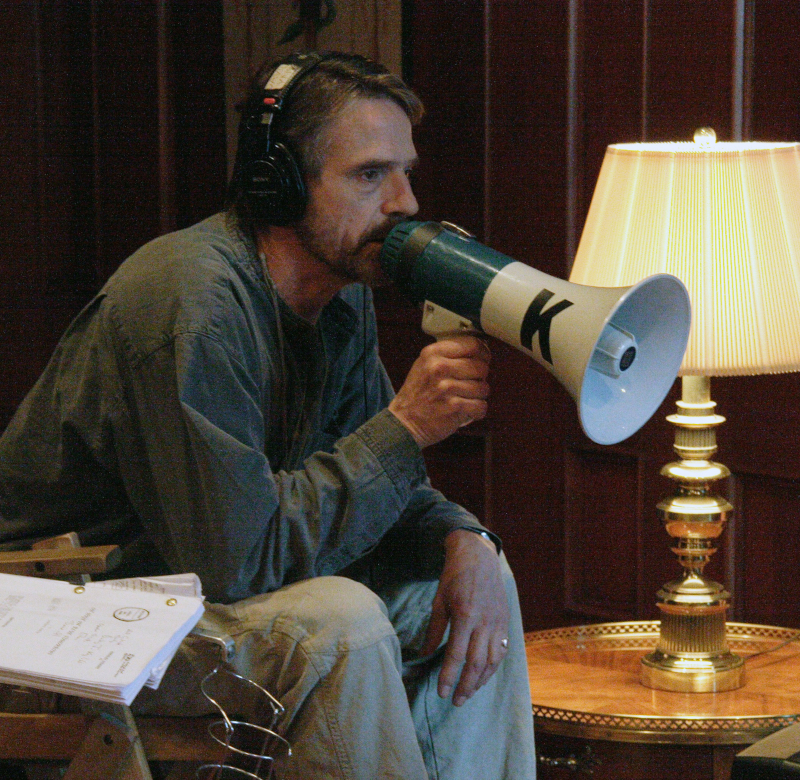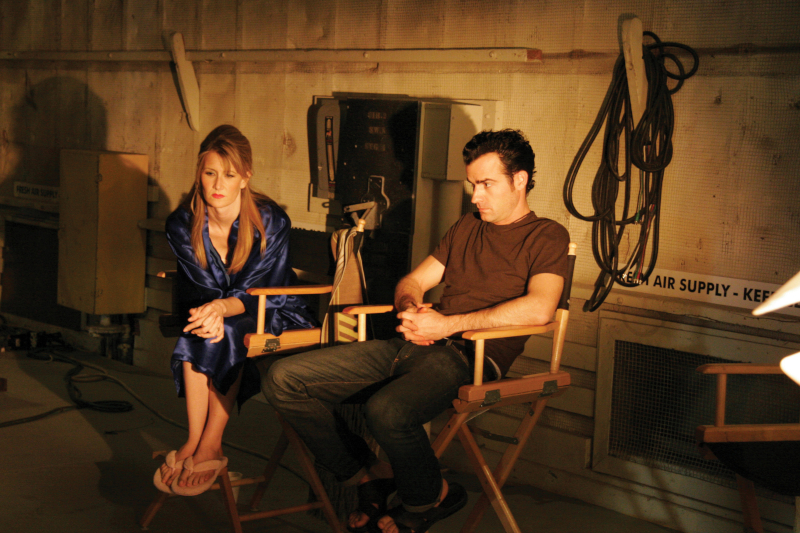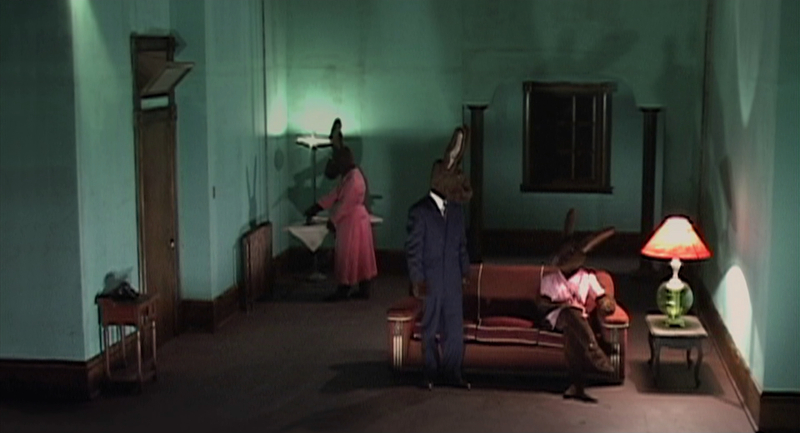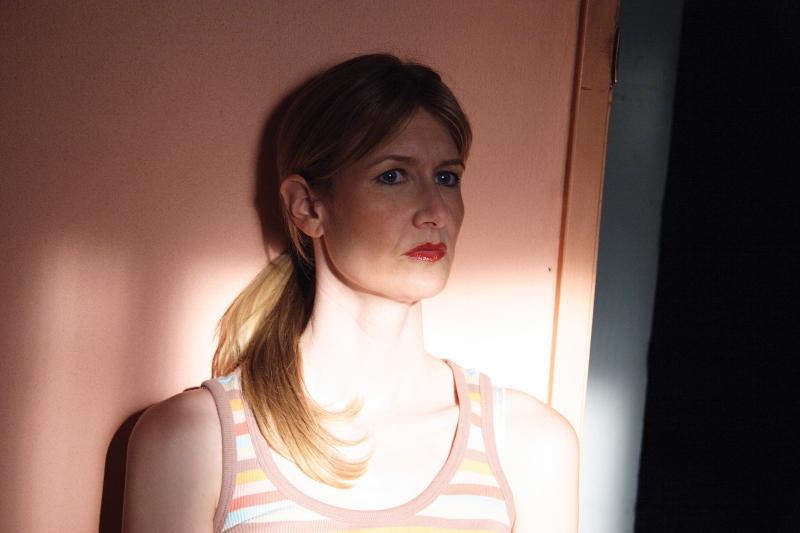Director – David Lynch – 2006 – US – Cert. 15 – 180m
*****, *, or somewhere in between
Immersing herself in the role she plays in the movie she’s currently shooting, an actress loses herself in it as she becomes increasingly divorced from reality – 4K remaster is out in UK cinemas on Friday, May 26th then Blu-ray / DVD on Monday, June 19th
I first watched this when it came out in 2007. I wasn’t sure what to make of it then and, revisiting it for the first time in roughly a decade and a half, I’m still not sure what to make of it now. It’s a Hollywood film in the sense that Lynch is highly respected in Hollywood, yet it’s not a Hollywood film in the sense that it steadfastly refuses to play by any rules other than Lynch’s own – and whatever those rules are, they are almost certainly made to be broken.

To attempt to impose a plot on the film is probably a mistake. Most commercially produced movies have a script, characters, a plot and can be judged on their narrative coherence, technical expertise and the actor’s performances. Technical expertise may be a good place to start. Prior to this film, Lynch had started making short films for his website using a small digital camera, and as someone who began making films at art school (quite literally animating a painting that he wanted to move for his first film) before spending some years making movies with the accepted, industrialised production process, he clearly found the experience liberating.
On one level, this joins all those movies which are about the making of movies, and in parts of it, particularly around the beginning and the end, the apparatus of Hollywood industrial moviemaking is clearly visible, from studio buildings the size of aircraft hangars containing yet to be completed movie sets to a sequence near the close where you suddenly become aware of a camera mounted on a huge crane shooting the proceedings.

Inland Empire’s framing story – or one of its framing stories, at least – concerns actress Nikki Grace (Laura Dern) who has landed the role of the protagonist Susan Blue in the movie On High In Blue Tomorrows directed by one Kingsley Stewart (Jeremy Irons). So it has characters – a good many more than just these two, actually – but many of them appear for the occasional one-off scene never to appear again, while others drift in and out of the flow.
If this sounds not dissimilar in structure from Lynch feature films that preceded it, it’s arguably looser and more playful than those films. That’s not to say it’s as good, or achieves the same overall degree of excellence. But anyone who has watched a David Lynch film will recognise this as coming from the same creative source. And perhaps this is freer in terms of its production than any film since Eraserhead (1977), on which Lynch spent a number of years holed up in a building working with a small group of collaborators on what would eventually become that film.

Within minutes of Nikki’s arriving on set a mysterious intruder is half spotted, pursued and lost in the building by her co-star Devon Berk (Justin Theroux), which with similar logic to the man who turns up at a party to phone himself at the house of a guest in Lost Highway (1977) is echoed later when Nikki playing Susan goes through a mysterious door and passages behind it only to find herself in the position of the intruder she and the others witnessed earlier.
The doppelgänger is a recurring theme. Aside from the obvious duality of an actor and their role, something which comes into play in any performance-based artistic form where actors play roles, including movies, there is also a good Nikki / Susan and a bad Nikki / Susan, as evidenced by the scene in which while walking down a street, she spots herself soliciting for business as a prostitute.
Another theme is the non-linearity of our perception of time, with constant references to remembered events which may be going to take place tomorrow or may have happened yesterday. If the documentary Kurt Vonnegut: Unstuck In Time (Robert B. Weide, 2021) describes this phenomenon, as that author claimed it described his existential experience, Lynch here takes us inside of it so that we can experience it for ourselves.

It’d be impossible within the short space of a review such as this to even list all the amazing performances, but the more outstanding ones would have to include Grace Zabriskie as a neighbour who calls in on the actress’ upmarket home to talk about Nikki’s upcoming role and then intones dire consequences. In another, one of the producers, Erik Crary, plays a man in an office at the top of a flight of stairs who listens impassively to Nikki / Susan as she tells him her life story. This latter is not exactly a performance so much as capturing something compelling from a person at whom a moving picture camera is pointed. Purists would claim this person isn’t really acting, and they’d probably be correct. Nevertheless, his resultant moving image, even though he himself doesn’t do very much, is extraordinary.

Elsewhere, a family of people with rabbit heads recurs as a motif, one female doing the ironing, one female (although I wasn’t sure at first) permanently seated on a sofa and one male, who is seen entering and leaving the apartment on occasion. This scenario (another framing device) feels like extracts from a (mostly) one-camera-position-filmed recording of a stage play or a TV show, complete with canned audience laughter.
If you’re wanting anything like a conventional movie – or even anything like any previous David Lynch movie – you’re almost certain to be disappointed. It arguably makes less sense than anything else Lynch has ever done in the cinema. Equally, though, it feels like a deep dive into the subconscious, with all manner of weird unpredictably coming at the viewer from all directions. Lynch has many times over demonstrated himself the master of dream logic narrative. On this occasion, he refuses to impose either narrative or logic on the dream.
Inland Empire is out in a 4K remaster in cinemas in the UK on Friday, May 26th, then on Blu-ray / DVD on Monday, June 19th.
Trailer:
